Ascent to Malayattoor
- Adrian David

- Mar 29, 2024
- 5 min read
Lent is a season of prayer and self-reflection. Just as Christ wandered in the desert and fasted for forty days, billions of Christians around the world observe abstinence and fasting during this holy season.
During this time, it’s common for folks to go on a penitential walk to popular pilgrimage sites. Following this tradition, I decided to embark on a Lenten pilgrimage to the pilgrim town of Malayattoor in Kerala, located on the southern coast of India.
Every year, thousands of pilgrims from across the world undertake this pilgrimage, traditionally in a state of nombu (fasting) without consuming any food, to seek spiritual direction and reflect on the true meaning of Lent. Many of whom go with specific prayer intentions, either waiting for answers or giving thanks for prayers already answered.
Picturesquely situated on the banks of the Periyar River in the Ernakulam district, this tiny village provides an ideal setting for spiritual enlightenment. Its name is a combination of three words: mala (mountain), arr (river), and oor (place).

What put Malayattoor on the map is the missionary work of Saint Thomas here. He took refuge on a mountain during his missionary days, where he lived in solitude and experienced a divine apparition. This site has since become a revered global pilgrimage destination.

He founded a church atop a hill, which is today named after him and known as the Saint Thomas Syro-Malabar Catholic International Shrine. This holds the unique distinction of being one of only eleven international shrines in the world recognized by the Catholic Church and the only one in India.

I visited Malayatoor on Good Friday and witnessed pilgrims from near and far thronging to this sacred place. Soulful hymns were played on loudspeakers all around the town.

The distance from the foot to the top of the hill is 1269 feet, which is around 3 kilometres and it took me 2 hours to climb.

Thankfully, there was a map in place that directed visitors to the important sites of spiritual significance across the area.

Pilgrims from various parishes were carrying heavy wooden crosses on their shoulders in a fervent display of devotion, walking all the way to the mountain peak while singing praises.



It was surprising to see people from as far as from Assam walking with crosses. To put it into perspective, the states of Kerala and Assam are 3476 kilometres apart from each other, roughly the same distance between France and Finland.

As challenging as it was for me as it was for many others, walking to the top while fasting was a way of seeking inner peace. As the saying goes, it’s not the destination, it’s the journey.



Pilgrims of all ages enthusiastically participated, with some elderly devotees having made this journey since childhood. Despite their advanced age and frail health, they persevered with determination


The trail was rocky and steep with no paved steps, making it hard to navigate. But the divine experience at the end made every step worth it.



Water stations along the way quenched our physical thirst, while the walk itself fulfilled our spiritual thirst.

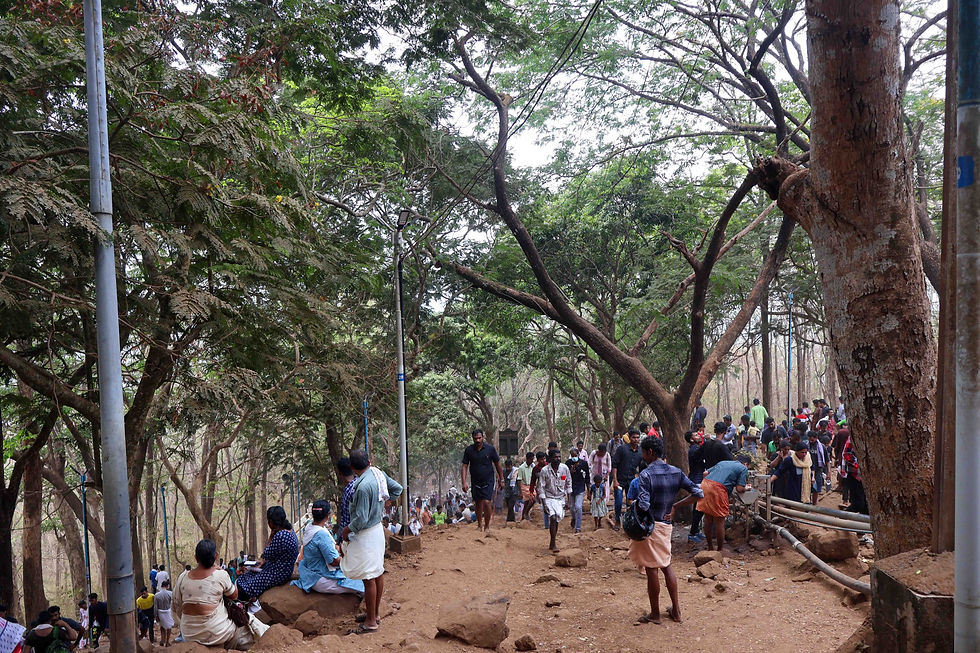
Along the mountain path, the Stations of the Cross were positioned in ascending order, guiding us upward. At each station, we paused to pray and light candles together, reflecting on the passion of Christ.


On his way to the east coast of India back in the 1st century AD, Saint Thomas stopped at Malayatoor, where locals, wary of his Christian influence, greeted him with hostility. Despite his peaceful intentions to preach the Gospel, they hurled stones at him. Fearing for his life, Saint Thomas fled up to this very mountain, as the crowd chased him.


After hours of trekking, I reached the summit, where I was greeted by the pilgrim crosses.


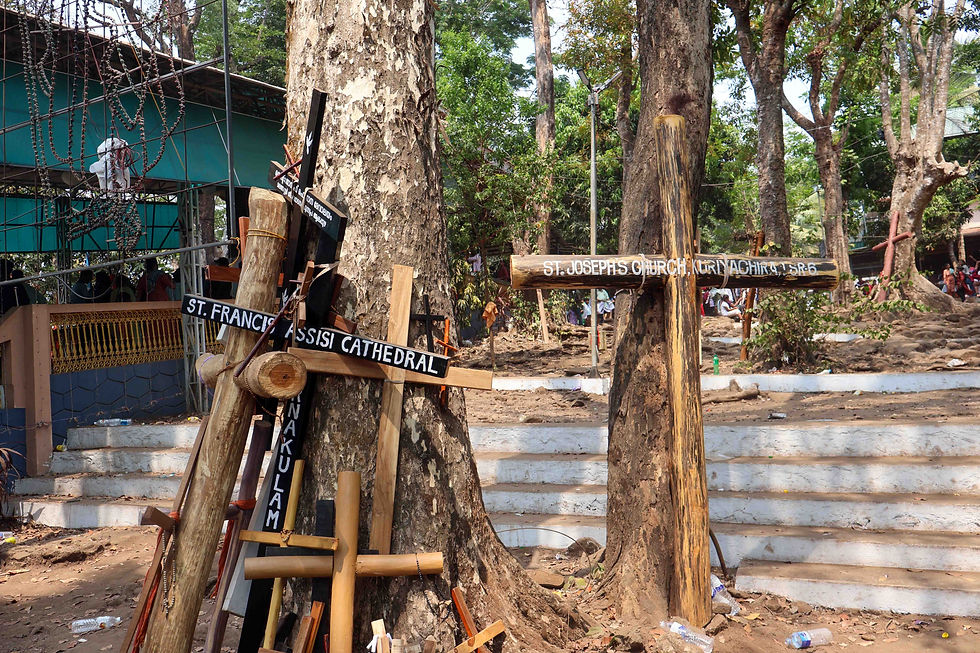

When Saint Thomas ascended the mountain, those who chased him believed he wouldn’t survive, succumbing to the harsh terrain. Nevertheless, the Apostle pressed on, driven by faith.
Reaching the summit, he carved a cross into the rock with his finger and prayed, leaving his fate to the Lord. In a moment of divine intervention, Mother Mary appeared to him, reassuring the Apostle that his work was far from over. With renewed purpose, Saint Thomas descended the mountain and continued his missionary work in India until his martyrdom.

Over the centuries, tribals on a hunting expedition stumbled upon the mountain peak, where they discovered a golden cross carved into a rock that glowed at night. Curious, they decided to remove the cross, striking the rock with their spear. But as they did, blood miraculously flowed from the cross, sending the men fleeing in terror.
They rushed to their village to share the news, and the people realized the divine significance of the Apostle who had blessed their land. The villagers knelt in front and prayed in front of it, calling it the Ponnum Kurishu (Golden Cross) A replica of the cross was eventually installed at this spot and can be seen today.


Near the golden cross, one can spot the footprints and knee marks of Saint Thomas imprinted on the rock.
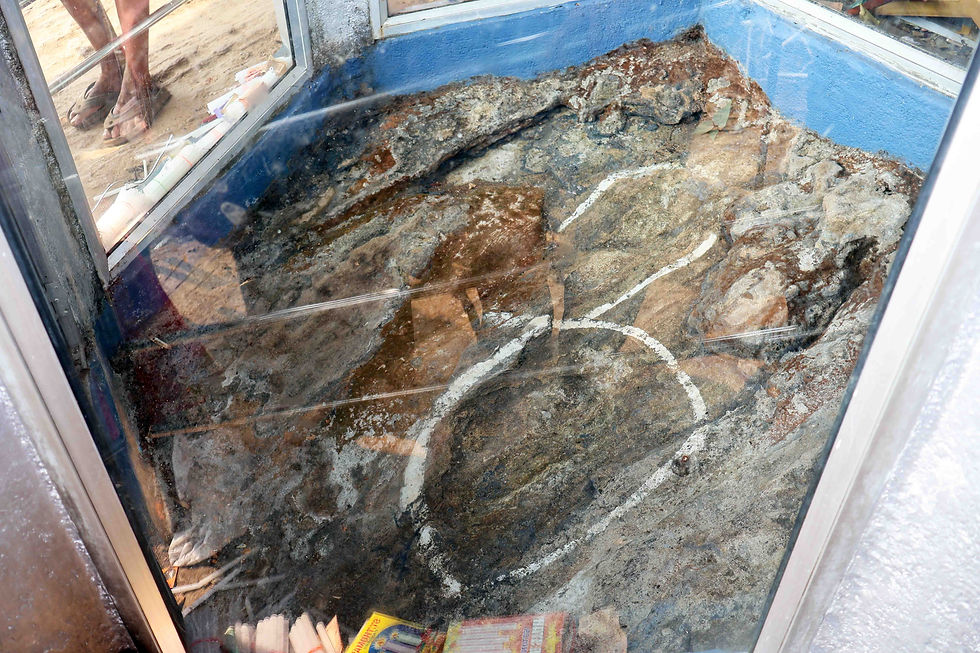
The spirit of Saint Thomas pervades this mountain. The arduous climb to the peak reflects the Apostle’s selfless devotion to spreading the word of God while enduring hardships along the way.
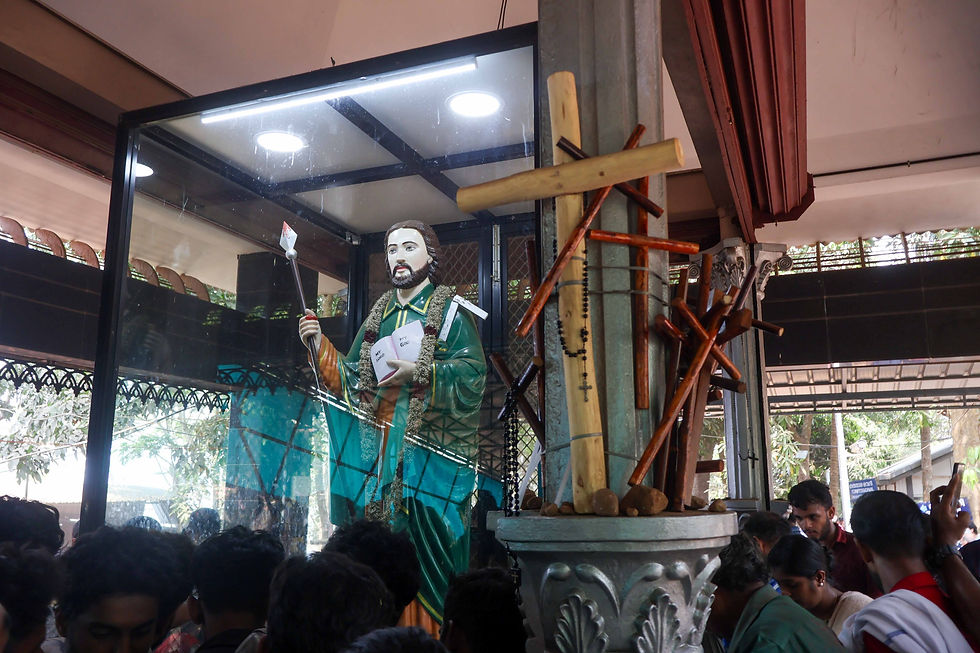
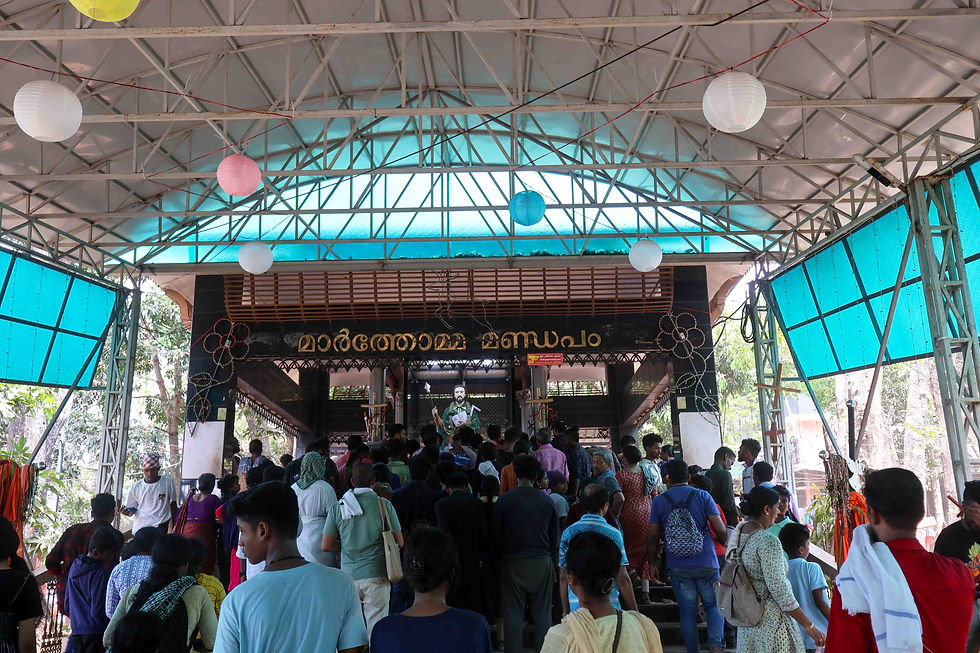

At the heart of the peak, the Malayattoor Kurishumudy Shrine stands tall in all its glory. Its revered status as an international shrine is shared by a very few Christian sites, including the iconic Our Lady of Lourdes Shrine in France.

Since it was Good Friday, the icons inside the shrine were veiled, awaiting their unveiling on Easter Sunday.

The well near the shrine was formed when Saint Thomas struck the rock, causing fresh water to flow. The water is considered sacred, and I felt blessed to have a glass of it as a volunteer drew it fresh from the well. It was refreshing for the body and soul after a long uphill climb.


The view of the entire town and its sprawling hills from the mountain peak was nothing short of extraordinary.

As I’d anticipated, the downward climb was easier than the upward trek. While going up took me close to three hours, coming down took me just one.

My pilgrimage to Malayattoor wouldn’t be complete without bringing home the blessed nercha payasam, a sweet pudding.. In Malayalam, nercha beautifully translates to an offering made to God.

Standing before the serene Malayattoor Lake, I could feel a sense of profound reverence for Saint Thomas, who walked this same path centuries ago. When he was about to give up, the Lord worked a miracle, reassuring the Apostle to continue his journey.
This moment resonated deeply with me, reminding me that God often works miracles in our lives when we feel lost and hopeless. As Don Moen’s powerful song puts it, “God will make a way when there seems to be no way. He works in ways we cannot see. He will make a way for me.”



